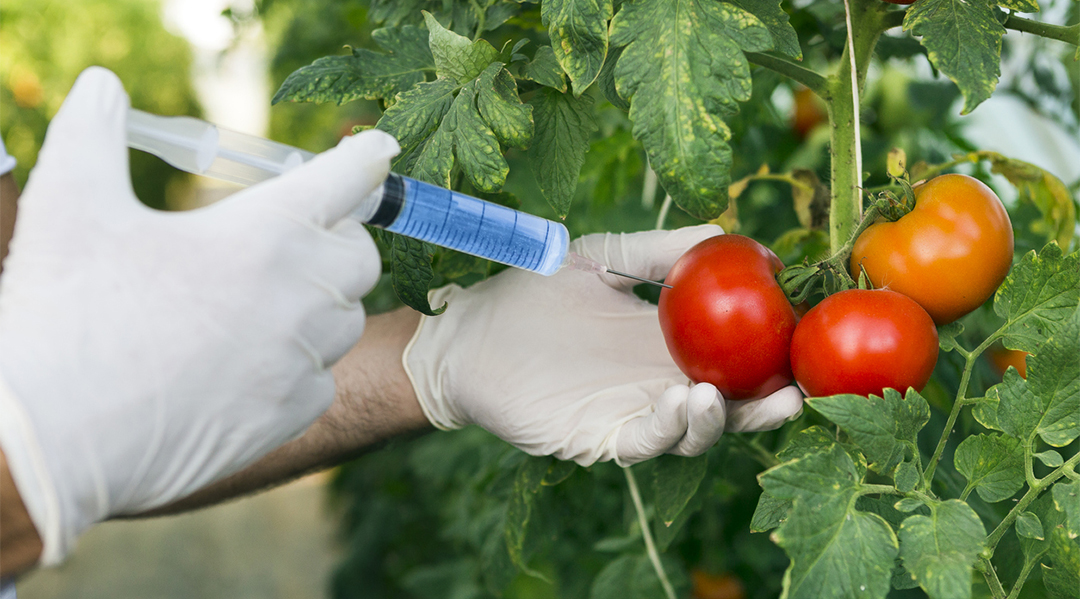Bt Corn GMO Testing (Cry1Ab/1Ac Genes)
The testing of genetically modified organisms (GMOs) within agriculture is a critical process that ensures compliance with regulatory standards and maintains the integrity of agricultural products. One such GMO, Bt corn, has been engineered to express specific cry proteins, which provide resistance against certain pests. This service focuses on the detailed analysis of Cry1Ab/1Ac genes in genetically modified maize (corn) samples.
Bt Corn, or Bacillus thuringiensis corn, is a variety that has been engineered to produce specific cry proteins encoded by the Cry1Ab and Cry1Ac genes. These proteins are toxic to certain insect pests like Leptinotarsa decemlineata (Colorado potato beetle) and Pectinophora gossypiella (pink bollworm), respectively, thus reducing the need for chemical pesticides. However, ensuring that these modifications are accurately detected in commercial samples is crucial for maintaining both consumer safety and market integrity.
The testing of Cry1Ab/1Ac genes involves several steps to ensure accuracy and reliability. The sample preparation process begins with thorough sampling from the field or storage facility, followed by DNA extraction using standard protocols such as the CTAB method or column-based procedures. Once extracted, the DNA is subjected to PCR amplification targeting specific regions within the Cry1Ab/1Ac genes.
The use of real-time quantitative PCR (qPCR) techniques allows for precise quantification and detection of these genes. The primers designed specifically for this purpose ensure high specificity and sensitivity, making them ideal for detecting even trace amounts of GMO material in corn samples. After amplification, the resulting products are analyzed via gel electrophoresis to confirm successful amplification and to visualize the expected band sizes corresponding to the Cry1Ab/1Ac genes.
For accurate quantification, real-time qPCR can be employed, providing precise measurements of the target gene copy number relative to a reference gene. This approach not only detects the presence but also quantifies the level of GMO material in the sample, which is essential for compliance with regulatory requirements such as those outlined by the European Union (Regulation 1824/1999).
In addition to PCR-based methods, other advanced techniques like next-generation sequencing (NGS) can also be used for comprehensive analysis of transgenic material in maize. NGS provides a more holistic view by allowing the detection and quantification of multiple genetic modifications simultaneously.
Our laboratory adheres strictly to international standards such as ISO/TS 17025, ensuring that all tests are conducted under controlled conditions, using validated methods, and with accurate reporting. Our team of experts uses state-of-the-art equipment including real-time qPCR machines, spectrophotometers for DNA quantification, and NGS platforms when necessary.
The results of our GMO testing are delivered promptly, usually within 5-7 business days from receipt of the sample. Reports include detailed information about the detection of Cry1Ab/1Ac genes along with their copy numbers if applicable. Compliance certificates can be issued upon request, ensuring that clients meet regulatory requirements.
Industry Applications
- Agricultural Production: Ensures accurate identification and quantification of Bt corn in commercial products to maintain compliance with national regulations.
- Food Safety: Detects the presence of Cry1Ab/1Ac genes to ensure that food products do not contain unintended GMO material, enhancing consumer confidence.
- R&D: Provides data for ongoing research on the efficacy and environmental impact of Bt corn.
- Supply Chain Management: Verifies the integrity of agricultural supplies and ensures traceability throughout the production chain.
Competitive Advantage and Market Impact
The ability to accurately detect Cry1Ab/1Ac genes in Bt corn offers several key advantages for businesses operating within the agriculture sector. Firstly, it allows companies to stay ahead of regulatory changes by ensuring that their products meet current and future requirements. Secondly, accurate testing enhances brand reputation by demonstrating commitment to quality and safety standards. Thirdly, this service supports market differentiation through precise quantification of GMO content.
Compliance with international standards such as those set by the European Union or United States Department of Agriculture (USDA) is essential for maintaining access to key markets. Our laboratory's expertise in GMO testing ensures that clients can confidently navigate these regulatory landscapes, thereby gaining a competitive edge.
The precision and reliability provided by our testing services also contribute significantly to the overall market stability. By ensuring consistent quality across different batches of Bt corn, we help prevent contamination issues that could arise from non-compliant products entering the supply chain. This not only protects consumers but also maintains trust among all stakeholders involved in agricultural production.
Use Cases and Application Examples
| Application | Description |
|---|---|
| Compliance Audits | Detection of Cry1Ab/1Ac genes in Bt corn samples to ensure compliance with national regulations. |
| R&D Studies | Quantification of Cry1Ab/1Ac gene expression levels for evaluating the effectiveness of different transgenic modifications. |
| Supply Chain Monitoring | Verification of Bt corn origin and purity to ensure adherence to traceability requirements. |
| Consumer Safety Verification | Detection of unintended GMO material in processed food products containing Bt corn. |





